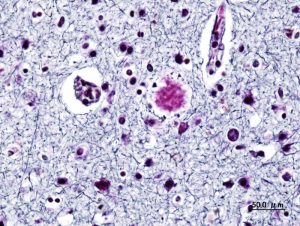On Subsequently, and not Unrelatedly, My Recovering My Mother
When I see my doctor for my annual check-up and the medical technician asks me what medications I am currently taking, there is often praise when I say that I take none. So far, I am lucky like that. At 46, it’s good luck and good genes (and a modicum of an exercise habit that I left fallow this past half year, but I am about to re-up, I swear!). For my mother, who is 72 years old, giving the same answer (“I don’t take any medications.”) is a sure sign that something is amiss.
 I call it “undiagnosed dementia” because there’s no way it’s not some form of dementia, but my mother has not seen a medical provider in a very long time. My brother and I aren’t sure how long is very long. Definitely more than five years, likely much more. We have lost track of how many years we have been asking our mother for information about her health (“Have you had a physical lately?” “Mom, would you like to get your teeth fixed?” “It seems like it would be a good idea to have those swollen feet looked at, they seem to be causing you pain.”), for her to fill out an advanced directive so we can honor her wishes at the end of her life, or just to share with us information about her life. We would love it if we could get her to a doctor!
I call it “undiagnosed dementia” because there’s no way it’s not some form of dementia, but my mother has not seen a medical provider in a very long time. My brother and I aren’t sure how long is very long. Definitely more than five years, likely much more. We have lost track of how many years we have been asking our mother for information about her health (“Have you had a physical lately?” “Mom, would you like to get your teeth fixed?” “It seems like it would be a good idea to have those swollen feet looked at, they seem to be causing you pain.”), for her to fill out an advanced directive so we can honor her wishes at the end of her life, or just to share with us information about her life. We would love it if we could get her to a doctor!
When my brother visited in August, he attempted to bring our mother to the Emergency Room at the local hospital in hopes that she would be seen for the array of symptoms about which we have long-standing concerns. As nearly anyone who hears the story is happy to exclaim, it wasn’t such a great idea to try to bring her without her consent. Note to self: hindsight is great but patronizing responses suck. It did not go well. What can I say? We were feeling a deep urgency made stronger by the fact that we have these drive-by visits that last a limited number of days. We did what we could.
Did I say it did not go well? It did not. My mother became a primitive huddle of deep-throated wailing. Take me home NOW. I want to be home NOW. Over and over. How do I know? My brother called me on his cell phone and handed it to my mother, hoping that hearing my voice would help her either 1) agree to go into the hospital (nope) or 2) calm down (nadda).
My brother and I worry that my mother has not only congestive heart failure (her ankles are distended and are a mottled color of purple and red), but has likely had a series of strokes. There’s enough circumstantial evidence to support this assessment. We are thankful that she has the company of her dog, which is probably the only reason my mother is still alive.
Yet we worry for this dog, who is neglected, and whose shit, old and new, populates every room in my mother’s darkened house, except the one where they sleep together. We are thankful beyond words for the gift of Meals on Wheels, which delivers meals – enough for one each day – so that my mother does not starve. For my last visit, before we were able to arrange for what I have taken to calling MoW, I arrived to find her and the dog surviving only on pears dropped off by a well-intentioned neighbor.
All this, and I am not sure if my mother is suffering. We are suffering: watching her live like this, watching her continual diminishment, engaging her resistance and struggling when we are not able to persuade her to accept help or to eat regularly. Wondering what is too much, what is too little.
She not only assures us that she is “fine,” she does not express any displeasure with her circumstance. In fact, the opposite: I am not leaving this place. Yes, I understand that she is no longer rational. But even irrational people suffer. Irrational people complain. Irrational people register when something is happening that they don’t want to have happen.
This is a major sticking point for me. At least until the courts grant us legal authority to make decisions on her behalf (which is taking its own sweet time – and I use “sweet” here as an euphemism to soften my aggravation). How do we honor our mother’s individual worth and dignity?
Before my mother lost her marbles, before she did not recognize me at my own wedding, she did not want help, she did not want to see a doctor, she did not want to get her teeth replaced, she did not want to tell us what her end-of-life wishes were, she did not want to leave her home of thirty-plus years. Now that she is not making rational choices, now that she is living in squalor, now that her neighbors are calling and emailing us to do something, now that she can barely negotiate walking around her house safely, now that her care for her dog meets standard definitions of neglect, now that she is losing weight even though her fridge is full, how do I let her choices when she was rational (psyche twisted by addiction and trauma as it was), but her mind in working order, how do I let that time, those ideas, that version of my mother, be my guide?
And that unexpected thing that happened the last time I saw my mother, when I came with my hardened heart? Hour after hour, in the shit-infested, dust-saturated, dishes-strewn house in which I spent my adolescent years, sitting with my mother whose hair had not been washed for a very long time, as I persisted in the face of her resistance until it transformed into acquiescence, my heart softened.
Wherein my mother lost her mind, she recovered her daughter.
